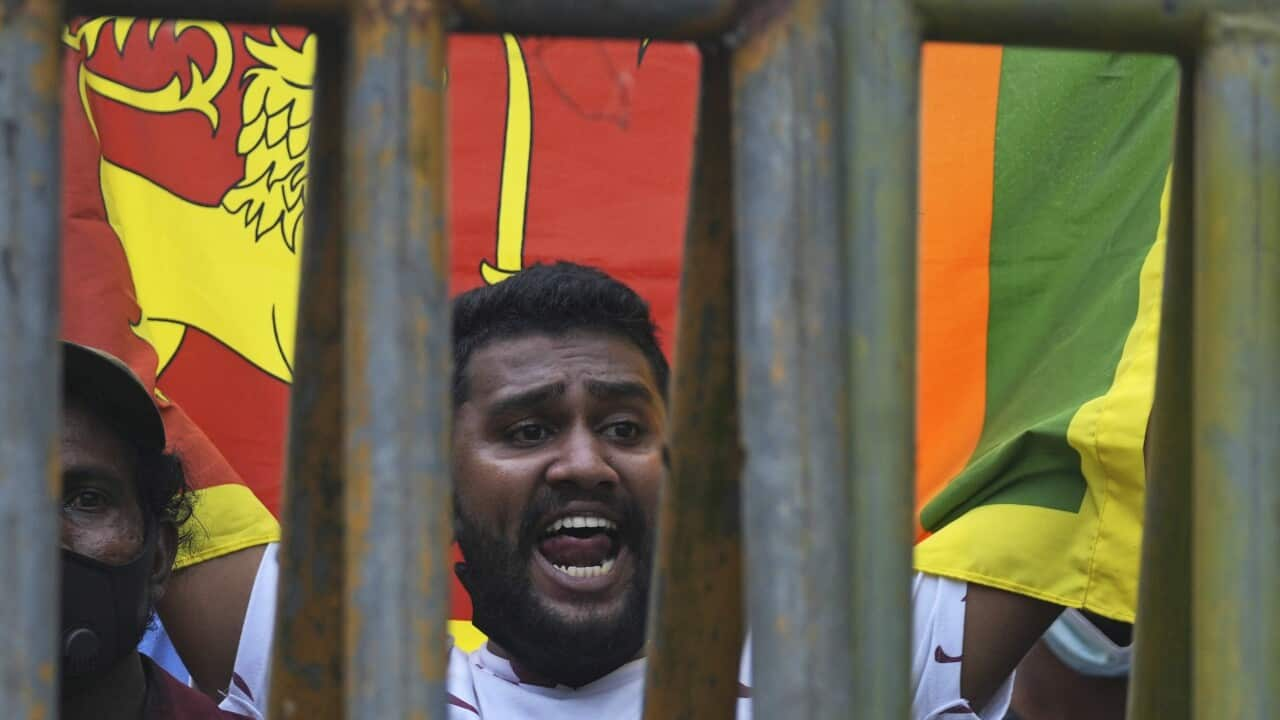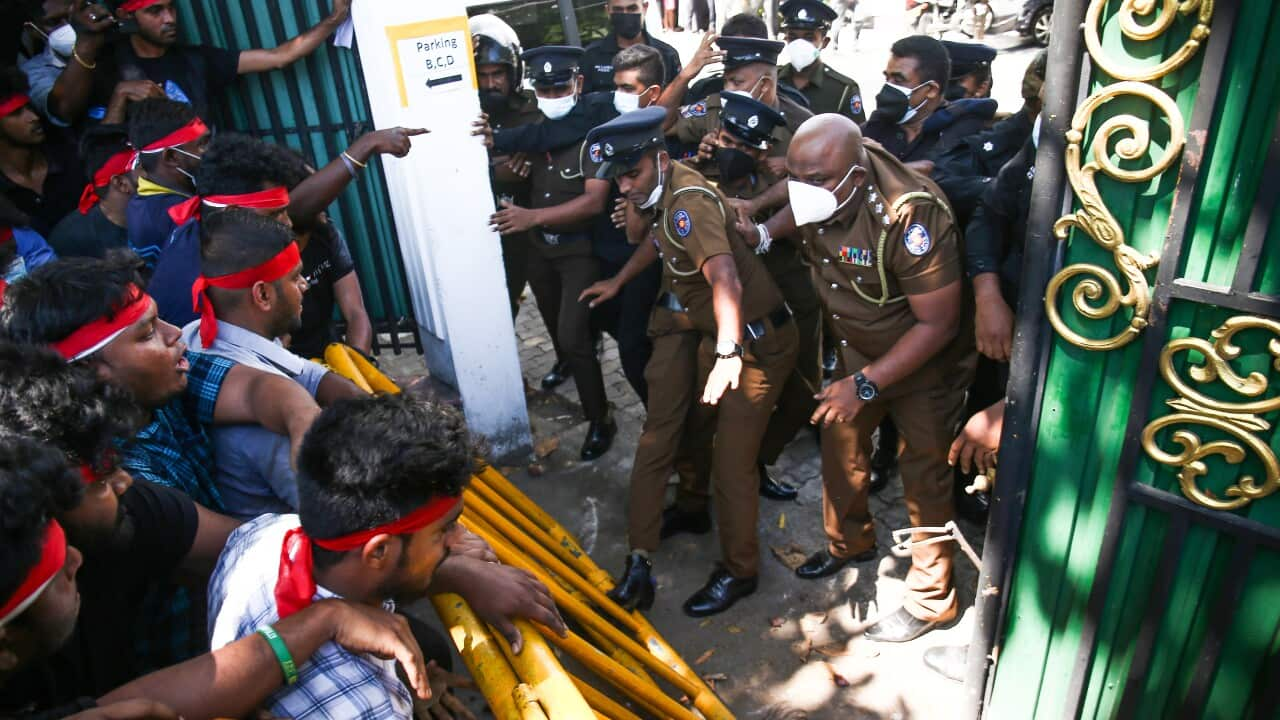Sri Lanka will need about US$3 billion ($4 billion) in external assistance over the next six months to help restore supplies of essential items, including fuel and medicine according to Finance Minister Ali Sabry.
The island nation of 22 million people has been hit by power cuts and shortages, which have drawn protesters out onto the streets and put President Gotabaya Rajapaksa under mounting pressure.
"It's a Herculean task," said Mr Sabry in his first interview since taking office this week, referring to finding US$3 billion in bridge financing as the country prepares for negotiations with the International Monetary Fund (IMF) this month.
The country will look to restructure international sovereign bonds and seek a moratorium on payments, and is confident it can negotiate with bondholders over a US$1 billion payment due in July.
"The entire effort is not to go for a hard default," Mr Sabry said. "We understand the consequences of a hard default."
JP Morgan analysts estimated this week that Sri Lanka's gross debt servicing would amount to US$7 billion this year, with a current account deficit of around US$3 billion.
The country has US$12.6 billion in outstanding international sovereign bonds, central bank data showed, and foreign reserves of US$1.9 billion at the end of March.
"The first priority is to see that we get back to the normal supply channel in terms of fuel, gas, drugs ... and thereby electricity so that the people's uprising can be addressed," Mr Sabry said.
The IMF said on Saturday that it had started technical-level engagement with Sri Lanka's finance ministry and central bank officials for a loan programme, and was "very concerned" about the ongoing crisis.
"We commit to assisting Sri Lanka consistent with our policies, and will engage in discussions on a possible program with senior policymakers in the coming days and weeks," Masahiro Nozaki, the IMF's mission chief for Sri Lanka said in a statement.
'Unpopular' interest rate and tax hikes to come
Anti-government protests have raged across the island for days, with at least one turning violent in the commercial capital of Colombo, in a threat to the country's lucrative tourism industry.
Thousands of protesters gathered near the president's seafront office in Colombo on Saturday, making it one of the biggest shows of public outrage in recent days.
Mr Sabry said he will lead a delegation of Sri Lankan officials to Washington to start talks with the IMF on April 18 and that financial and legal advisers would be selected within 21 days to help the government restructure its international debt.
"Once we go to them, first thing is there is a sense of confidence in the entire international monetary community that we are serious," he said. "We are transparent, we are willing to engage."
On Friday, the new central bank governor raised interest rates by an unprecedented seven percentage points in a bid to tame rocketing inflation and stabilise the economy.
Sri Lankan authorities will also reach out to rating agencies, Mr Sabry said, as the country looks to regain access to international financial markets after being locked out due to multiple ratings downgrades since 2020.

Thousands of Sri Lankans gathered in the country's main business district to observe a day of protest on Saturday calling on the country's president to resign amid worst economic crisis in history. Source: AP / Eranga Jayawardena/AP
These measures were among key recommendations in an IMF review of Sri Lanka's economy released in early March.
"These are very unpopular measures, but these are things we need to do for the country to come out of this," Mr Sabry said.
Loans from India and China as nations vie for influence
He said Sri Lanka will seek another US$500 million credit from India for fuel, which would suffice for about five weeks.
The government would also look for support from the Asian Development Bank, the World Bank and bilateral partners including China, the United States, Britain and countries in the Middle East.
"We know where we are, and the only thing is to fight back," Mr Sabry said. "We have no choice."
Discussions are ongoing with China on a US$1.5 billion credit line, a syndicated loan of up to US$1 billion and a request from Sri Lanka's president in January to restructure some debt.
"Hopefully we will be able to get some relief which would help ... until larger infusions come in," he said.
Beijing and New Delhi have long jostled for influence over the island off India's southern tip, with the country pulling closer to China under the powerful Rajapaksa family.
But in recent weeks, as the economic crisis deepened, Sri Lanka has leaned heavily on assistance from India.
"We are a neutral country," said Mr Sabry. "We are a friend of all."



